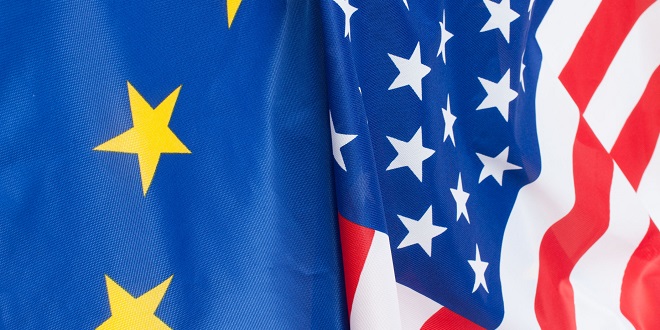Sports betting is sports betting; right? Fundamentally, yes. But where the US market and its European counterpart are concerned, it comes in slightly different flavours.
Three industry experts explain…
Talk of Europe’s role as a shaping presence in the US market for sports betting became something of a leitmotif to proceedings from the moment that PASPA was consigned to the history books.
And while chatter of a British/European invasion may have been wishful thinking on the part of some stakeholders, there is no doubting Europe’s growing influence on this emerging sector thanks to the likes of William Hill and Paddy Power Betfair, to name but two operators that are well in on the act.
But alongside European expertise in sports betting – and there is that in abundance – there are also some lessons to be learned, as Nathan Rothschild, partner and co-founder at Genius Tech Group, told SBC Americas within a recent interview.
He suggested that US operators can learn from what has happened to gambling markets in Europe and elsewhere and employ measures to ensure that from the off they don’t run foul of the same issues around over-exposure.
“The excitement around the regulated US sports-betting opportunity is palpable and the recent spate of sponsorship deals between betting operators and major US teams and leagues is a further indication of the enthusiasm on display from all sides,” he said.
“Such high-profile promotional efforts, alongside the rest of the arsenal of advertising and marketing techniques ready to be deployed, are sure to bear fruit in markets that have been starved of regulated betting to date.”
That excitement and enthusiasm, said Rothschild, comes with a downside. “As we can see from the experience in some regulated markets in Europe, unfettered access to available marketing avenues brings with it a warning. The UK is the most obvious example of the dangers of taking market access for granted – and of how a regulator can kick back in a very public and costly way. Not only are the restrictions on gambling advertising increasing, where gambling is still allowed there are often more stringent rules on what can be advertised.”
Rothschild advised that within the context of the emerging US sports wagering landscape, winning on product will be the new war to win in sports betting. “Regulatory and compliance issues aside, I think one of the lessons from the UK is that operators need to avoid the race to the bottom as they trawl for new customers. It means, we think, focusing on the quality of the products and what you can do to entice the punters to choose your offering and then, even more importantly, stay with you for the long term.
Another voice exercising the need for a balanced approach was SBTech’s Andrew Cochrane, who spoke at SBC Events’ Betting on Sports conference in London. Speaking as part of a panel dedicated to the trading challenges facing US sports wagering, he articulated the need for a gentler approach to winning over American bettors than is currently the experience in Europe.
“I think certainly, the early signs that we’re seeing in Mississippi and New Jersey is that punters generally, are soft,” Cochrane explained. “They’re recreational. They’re not price sensitive. They’re mainly betting pre-game, as you’d expect. They’re not really looking at the derivative markets. Typical European books are offering hundreds of derivative markets.
“In Europe, across the SBTech network, we’re seeing 80 per cent of the volume of GGR coming through or the volume of bets coming through either close to the start of an event or during an event. That’s just simply not the case in the US. I think that’s leading to a number of things. I think it’s leading to some volatility on GGR for the land-based operators, for sure. I think it also demonstrates the real lack of understanding of sports betting to the American punter.”
He continued: “I’ll just give you a quick example of a casino in Mississippi where we just deployed some cashier solutions and also some self-service betting terminals running our software. A punter came up to one of the staff with a card from, I think, a William Hill book, and it actually documented a 10-team parlay offering a return of around about 700/1 and he thought it was absolutely fantastic. But we took him over to a terminal, put in the same selections into the terminal and the odds were more like 1000/1 and, actually, exceeded the maximum pay-out for a bet under the regulations in that state.
“I think there’s definitely a journey that US players need to go on. I think, as more European technology gets deployed into the US, you’ll definitely see a really sharp learning curve. I believe punters are going to get stronger and better and sharper and I think European and B2B sportsbook companies probably need to up their game in terms of what they’re doing in US sports trading to make sure that they maintain a good margin as the market matures.”
Echoing that view on the same expert panel was RedZone Sports’ Warren Llambias, who also drew a distinction between US and European sports bettors. “We think there’s two types of sports clients that are going to be in the US,” he noted. “Those that were betting on sport before the legislation changed, either betting offshore somewhere or in Vegas, and there’s a whole virgin group of clients that are going to need to be educated in sports betting.
“They’re coming from a fantasy world where they’re very stats driven and, in the US, punters are used to quite poor lines and a poor service in general. In the UK and in Europe, we’re used to clients being very price driven and very sophisticated with their betting. I think with the US clients – the new US clients coming in – there will be an education that we have to do, and we have to be careful that we don’t bombard them with too many markets and make it too sophisticated for them.
“That’s not to say they won’t pick it up very quickly, but I think it’s a case of educating them.”









